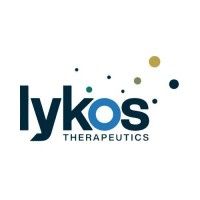预约演示
更新于:2025-05-07
5-HT receptor x 5-HT2A receptor
更新于:2025-05-07
基本信息
关联
255
项与 5-HT receptor x 5-HT2A receptor 相关的药物作用机制 5-HT2A receptor拮抗剂 [+1] |
原研机构 |
在研适应症 |
非在研适应症 |
最高研发阶段批准上市 |
首次获批国家/地区 韩国 |
首次获批日期2024-12-12 |
作用机制 5-HT1D receptor激动剂 [+4] |
在研机构 |
原研机构 |
在研适应症 |
非在研适应症 |
最高研发阶段批准上市 |
首次获批国家/地区 美国 |
首次获批日期2020-06-25 |
作用机制 5-HT2A receptor拮抗剂 [+1] |
最高研发阶段批准上市 |
首次获批国家/地区 美国 |
首次获批日期2019-12-20 |
3,867
项与 5-HT receptor x 5-HT2A receptor 相关的临床试验NCT06005662
Inpatient Buprenorphine Induction With Psilocybin for Opioid Use Disorder: a Randomized Double-blind Trial
This study will examine the effect of a single high dose of psilocybin therapy (30 mg) versus a very low dose (1 mg) as an adjunctive therapy to individuals undergoing standard-of-care buprenorphine treatment for Opioid use disorder (OUD). Effects of adjunctive psilocybin will be determined for longitudinal outcomes of opioid abstinence, compliance with buprenorphine maintenance, quality of life, and mood.
开始日期2027-04-01 |
申办/合作机构 |
NCT05683574
Parallel-Group,Double-Blind,Double-Dummy,Superiority Study of Etoricoxib90mg/ Cyclobenzaprine15mg From Eurofarma Versus Etoricoxib90mg (Arcoxia®) and Cyclobenzaprine15mg (XL - Mitrul®) for Muscle Spasm After Third Molar Extraction in Brazil
Etoricoxib and cyclobenzaprine hydrochloride are active pharmaceutical ingredients (APIs) already registered in the country as mono-drugs. These products are widely used for the proposed indications, and their safety and efficacy profiles are known in daily clinical practice. Once the absence of a pharmacokinetic interaction between etoricoxib and cyclobenzaprine hydrochloride has been confirmed in relative bioavailability studies, this phase 3 study will be conducted for demonstrating the superiority of the new FDC over etoricoxib 90 mg (Arcoxia®) and cyclobenzaprine hydrochloride 15 mg (XL - Mitrul®) in the treatment of moderate to serious pain associated with muscle spasm. The purpose is to provide a new, effective, and safe therapeutic option to address these cases. Etoricoxib and cyclobenzaprine hydrochloride are active pharmaceutical ingredients (APIs) already registered in the country as mono-drugs. These products are widely used for the proposed indications, and their safety and efficacy profiles are known in daily clinical practice. Once the absence of a pharmacokinetic interaction between etoricoxib and cyclobenzaprine hydrochloride has been confirmed in relative bioavailability studies, this phase 3 study will be conducted for demonstrating the superiority of the new FDC over etoricoxib 90 mg (Arcoxia®) and cyclobenzaprine hydrochloride 15 mg (XL - Mitrul®) in the treatment of moderate to serious pain associated with muscle spasm. The purpose is to provide a new, effective, and safe therapeutic option to address these cases.
开始日期2026-05-30 |
申办/合作机构 |
NCT03606538
A Phase I, Open Label, Study of 3,4-Methylenedioxymethamphetamine (MDMA) Tolerability and Pharmacokinetics in Subjects With Moderate Hepatic Impairment Compared to Matched Control Subjects With Normal Hepatic Function
The goal of this clinical trial to learn how MDMA is processed in people with abnormal liver function.
The main questions it aims to answer are:
Do people with abnormal liver function experience greater absorption of MDMA? Does the dose of MDMA need to be adjusted in people with abnormal liver function?
Researchers will compare people with abnormal liver function to people with normal liver function.
Participants will receive a single dose of MDMA then undergo periodic vitals measurements. They will remain at the study site for two more days undergoing more vitals measurements and having subjective effects and adverse events measured.
The main questions it aims to answer are:
Do people with abnormal liver function experience greater absorption of MDMA? Does the dose of MDMA need to be adjusted in people with abnormal liver function?
Researchers will compare people with abnormal liver function to people with normal liver function.
Participants will receive a single dose of MDMA then undergo periodic vitals measurements. They will remain at the study site for two more days undergoing more vitals measurements and having subjective effects and adverse events measured.
开始日期2026-03-29 |
申办/合作机构 |
100 项与 5-HT receptor x 5-HT2A receptor 相关的临床结果
登录后查看更多信息
100 项与 5-HT receptor x 5-HT2A receptor 相关的转化医学
登录后查看更多信息
0 项与 5-HT receptor x 5-HT2A receptor 相关的专利(医药)
登录后查看更多信息
5,765
项与 5-HT receptor x 5-HT2A receptor 相关的文献(医药)2025-12-31·Annals of Medicine
Effect of serotonin receptor gene variants on substance use disorders
Article
作者: AL-Eitan, Laith ; Alghamdi, Mansour ; Abu Kharmah, Hana
2025-12-01·Molecular Biology Reports
Repurposing serotonergic drugs for gastric cancer: induction of apoptosis in vitro
Article
作者: Abedini, Fatemeh ; Amjadi, Omolbanin ; Ahangari, Ghasem
2025-06-01·Clinical and Experimental Pharmacology and Physiology
Sex Steroid Control of Serotonergic System: Clinical Implications for Psychiatric Disorders and Addiction Treatment
Review
作者: Chiu, Hsien‐Jane ; Wei, Lien‐Chung
367
项与 5-HT receptor x 5-HT2A receptor 相关的新闻(医药)2025-04-24
·药融圈
注:本文不构成任何投资意见和建议,以官方/公司公告为准;本文仅作医疗健康相关药物介绍,非治疗方案推荐(若涉及),不代表平台立场。任何文章转载需得到授权。在当前的癫痫治疗领域,耐药普遍,同时部分患者对现有药物不敏感,临床亟需更安全更有效的创新药物。药融圈获悉:丽珠医药(深交所代码:000513;香港联交所代码:01513)的1类新药NS-041,作为新一代KCNQ2/3激活剂,凭借靶点高选择性与独特分子设计,在临床前及I期临床研究中展现了成为同类最佳(Best-in-Class)药物的潜力。- 癫痫-1/3 患者对现有药物不敏感,KCNQ2/3靶点药物有望破局癫痫是一种病因复杂的神经系统疾病,全球患者超5000万,中国患者约1000万,占比近1/5。其特征是反复发作、不可预测的脑部异常放电而引起的短暂大脑功能障碍。患者发作时表现为突发意识丧失、肢体抽搐、感觉异常(如幻视、幻听)或自主神经功能紊乱等,严重时甚至危及生命。癫痫主要分为局灶性癫痫(占60%,发作起源于特定脑区,局部症状)和全面性癫痫(全脑异常放电,全身性症状或意识障碍)。目前,药物是治疗癫痫的主要手段,但约1/3患者对现有药物不敏感,称为难治性癫痫,临床迫切需要新型作用机制、更安全更有效的治疗药物。随着科学界对发病机制的深入研究,钾离子通道的KCNQ家族因关键调控作用备受关注,为研发新型抗癫痫药提供方向。KCNQ基因编码的电压门控钾通道Kv7,是最早被发现与人类疾病相关的离子通道之一。该家族包含Kv7.1-Kv7.5(KCNQ1-5)五个亚型。研究表明,KCNQ2与KCNQ3形成的复合通道是M电流的核心分子基础。这两个亚型若发生基因突变,会引发神经元异常放电,导致癫痫发作。因此,KCNQ2/3是抗癫痫药物的重要靶点,其调节剂有望成为难治性癫痫患者的临床用药选择。- NS-041-靶点选择性更高、亲和力更强、治疗窗更大,展现Best-in-Class潜力全球首个靶向KCNQ2/3的抗癫痫药物瑞替加滨,曾因疗效显著于2011年获批上市,但因皮肤及视网膜色素沉积等严重副作用,于2017年撤市。为此,新一代同靶点药物通过结构优化、提高靶点选择性等方法,规避瑞替加滨曾面临的安全性风险。目前,全球尚无新一代靶向KCNQ2/3的抗癫痫药物上市,多数处于临床研究阶段。其中,丽珠医药与纽欧申共同开发的NS-041,凭借高靶点选择性与独特分子设计,与具有公开数据的同类在研产品相比,具有靶点选择性更高、亲和力更强、治疗窗更大等优势,展现出同类最佳(Best-in-Class)潜力。01靶点选择性更优:临床前体外实验数据表明,NS-041对KCNQ2/3的选择性显著高于国际同靶点在研药物,精准作用于核心靶点,有利于提高产品的有效性和安全性。02疗效更突出:体外实验表明,NS-041对KCNQ2/3靶点的作用比同类在研产品更强。动物模型研究结果提示,NS-041更低剂量即可实现同等疗效。03安全性更高:临床前研究:体外实验数据表明,NS-041的治疗窗更宽,为临床用药方案提供更灵活的选择性。I期临床数据:NS-041的I期临床试验(随机、双盲、安慰剂对照)显示,单次/多次给药均展现出良好的安全性、耐受性和药代动力学特征,未出现眼部相关不良反应,且神经系统不良反应发生率和程度均低于同靶点在研药物。NS-041即将进入II期临床试验,进一步探索其在局灶性癫痫患者中的有效性和安全性。基于药物的作用机制,NS-041未来还有望拓展至重度抑郁、双相情感障碍、神经痛及肌萎缩侧索硬化等疾病的治疗,为更多精神/神经疾病患者提供解决方案。- 丽珠医药-深耕精神疾病领域靶点突破+剂型革新驱动前行在精神疾病治疗领域,丽珠医药已构建起覆盖精神分裂症、抑郁症等多发适应症的产品矩阵。已上市产品中,瑞必乐®和康尔汀®作为国内首款获批的氟伏沙明片和盐酸哌罗匹隆片,分别成为抗抑郁和抗精神分裂药物的核心品种。两款药物均被权威指南列为一线推荐用药,并在国内市场占据重要地位。此外,布南色林片(丽同欣®)、盐酸鲁拉西酮片(舒立达®)和富马酸喹硫平缓释片(瑞思妥®)等产品共同构成了多靶点、多机制的治疗网络,为精神分裂症和双相情感障碍患者提供个性化的治疗方案。丽珠医药在精神领域还打造了完整且梯度分明的在研管线。一方面,凭借靶点创新攻克难治性疾病痛点,如 NS-041有望为耐药型、难治性癫痫和重度抑郁症患者带来突破性治疗方法。另一方面,通过长效技术解决患者依从性难题,注射用阿立哌唑微球、棕榈酸帕利哌酮注射液(微晶)、注射用阿立哌唑(微晶)、注射用布瑞哌唑微球等产品,构建起覆盖多元场景的长效治疗矩阵。从精准治疗方案的探索到用药便捷性的革新,丽珠医药秉持 “患者生命质量第一” 的使命,深耕精神疾病治疗领域,将科研成果高效转化为临床实践,照亮更多患者的精神健康之路!植根上海、辐射全球,药融圈作为生物医药产业级战略平台,以"让智慧与人脉无界流动"为使命,构建覆盖药物研发、生产、流通、商业化的全产业链赋能体系。通过智能化云服务、精准资源链接、产业智库与生态社群四大核心引擎,打造中国医药价值流动的基础设施。在全球化与数字化双重浪潮下,药融圈正重新定义医药资源的流通范式--这里不仅是信息与人脉的枢纽站,更是催生产业变革的化学反应器。我们以中国为原点,编织全球医药智慧网络,让每一次精准链接都成为企业跨越式增长的催化剂。点点赞点分享点推荐
临床1期
2025-04-21
·摩熵医药
注:本文不构成任何投资意见和建议,以官方/公司公告为准;本文仅作医疗健康相关药物介绍,非治疗方案推荐(若涉及),不代表平台立场。任何文章转载需要得到授权。近日,国药瑞福莱药业研发的2.2类新药布瑞哌唑口溶膜申报上市获得CDE受理,申报适应症为成人精神分裂症。截图来源:摩熵医药-中国审评审批数据库布瑞哌唑(Brexpiprazole)由丹麦灵北制药和日本大冢制药株式会社共同研发,2015年首次在美国批准上市,用于治疗重度抑郁症(MDD)和精神分裂症,并于2023年5月在美国新增适应症:治疗由阿尔茨海默病引起的痴呆相关的躁动症。2024年6月25日布瑞哌唑片在国内获批上市。布瑞哌唑口溶膜目前国内用于精神分裂症的治疗,注册分类2.2类。据摩熵医药-跨国药企销售数据库显示,该药全球销售额超20亿美元。截图来源:整理摩熵医药-药品销售数据库布瑞哌唑是阿立哌唑的迭代产品,相较于阿立哌唑对5-HT1a、5-HT2a、 5-HT7受体的亲和力更高,更好发挥临床疗效;对D2受体的内在活性低于阿立哌唑,因此诱导更少的由D2受体部分激动作用介导的AE(如,静坐不能)。同时口溶膜改良制剂一经服用会迅速黏附在上颚,快速释放药物,缓解患者病症,无需用水,无需吞咽,有效避免患者藏药、吐药,极大提高了患者的依存性,减轻了医疗人力资源的负担,具有显著的临床优势。据摩熵医药-中国药品审评审批库显示,目前已有多个厂家研发的布瑞哌唑口溶膜上市申请获得受理,如南通慧聚制药、江西远超医药、深圳宇健生物、新阳唯康等。另外还有多个企业申请一致性评价,如科伦药业、和泽医药等。小结精神分裂症药物市场巨大的潜力,吸引了众多的药企入局。针对布瑞哌唑的三种剂型(片剂、口溶膜、口崩片),已有几十家国内企业在布局,其中过半产品处于申请上市阶段。其中布瑞哌唑片竞争最为激烈,改良型新药方面,口溶膜、口崩片竞争也愈加激烈。国药瑞福莱药业有望凭借国药集团强大的销售体系,让产品突出重围。END本文为原创文章,转载请留言获取授权近期热门资源获取数据透视:中药创新药、经典验方、改良型新药、同名同方的申报、获批、销售情况-2025042023H2-2024H1中国药品分析报告-2025042024年中国1类新药靶点白皮书-202503中国AI医疗健康企业创新发展百强榜单-202502解码护肤抗衰:消费偏好洞察与市场格局分析-2025022024年FDA批准上市的新药分析报告-2025012024年NMPA批准上市的新药分析报告-2025012024年医保谈判及市场分析报告-2025.012024年中国医疗健康投融资全景洞察报告-202501小分子化药白皮书(上)-2025012024医美注射材料市场发展分析报告-202412中国放射性药物产业白皮书-202410近期更多摩熵咨询热门报告,识别下方二维码领取联系我们,体验摩熵医药更多专业服务会议合作园区服务数据库咨询定制服务媒体合作点击上方图片,即可开启摩熵化学数据查询点击阅读原文,申请摩熵医药企业版免费试用!
上市批准一致性评价医药出海免疫疗法
2025-04-17
GENEVA, Switzerland I April 17, 2025
I
Addex Therapeutics
(SIX/NASDAQ: ADXN), a clinical-stage biopharmaceutical company focused on developing a portfolio of novel small molecule allosteric modulators for neurological disorders, announced today that following the previously announced termination of development of ADX71149 (JNJ-40411813) in epilepsy, its partner Janssen Pharmaceuticals, Inc. (now known as J&J Innovative Medicine) has return all development and commercialization rights to ADX71149 (JNJ-40411813) and the partnership between the two companies has been terminated.
“ADX71149 is a high quality asset which has completed three Phase 2 studies so we are excited to regain control of its development from our partner with its high quality data package and significant material”, said Tim Dyer, CEO of Addex. “We are evaluating a number of high value therapeutic indications for the future development of the program as well as pursuing discussions with a number of potential partners for the program.”
About Addex:
Addex Therapeutics
is a clinical-stage biopharmaceutical company focused on developing a portfolio of novel small molecule allosteric modulators for neurological disorders. Addex’s lead drug candidate, dipraglurant (mGlu5 negative allosteric modulator or NAM), is under evaluation for future development in brain injury recovery, including post-stroke and traumatic brain injury recovery. Addex’s partner, Indivior, has selected a GABAB PAM drug candidate for development in substance use disorders. Addex is advancing an independent GABAB PAM program for chronic cough. Addex also holds a 20% equity interest in a private company, Neurosterix LLC, which is advancing a portfolio of allosteric modulator programs, including M4 PAM for schizophrenia, mGlu7 NAM for mood disorders and mGlu2 NAM for mild neurocognitive disorders. Addex shares are listed on the SIX Swiss Exchange and American Depositary Shares representing its shares are listed on the NASDAQ Capital Market, and trade under the ticker symbol “ADXN” on each exchange. For more information, visit
www.addextherapeutics.com
SOURCE:
Addex Therapeutics
临床2期
分析
对领域进行一次全面的分析。
登录
或

Eureka LS:
全新生物医药AI Agent 覆盖科研全链路,让突破性发现快人一步
立即开始免费试用!
智慧芽新药情报库是智慧芽专为生命科学人士构建的基于AI的创新药情报平台,助您全方位提升您的研发与决策效率。
立即开始数据试用!
智慧芽新药库数据也通过智慧芽数据服务平台,以API或者数据包形式对外开放,助您更加充分利用智慧芽新药情报信息。
生物序列数据库
生物药研发创新
免费使用
化学结构数据库
小分子化药研发创新
免费使用





